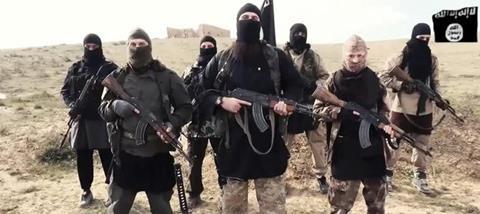
Recently, to mark the endless violence against people of faith, the Houses of Parliament, Westminster Abbey and Westminster Cathedral simultaneously lit up their iconic facades red.
This profound act of solidarity took place in this month of remembrance when we commemorate those whose lives were shed that we might enjoy the foundational freedoms – including the right to believe, to change belief or not to believe.
Since 2014, one in five (20%) of all countries have suffered religiously provoked attacks, and violence against religious minorities has become a major contributor to the relentless flow of displaced people and refugees – of whom there are now 68 million worldwide.
The Patriarch of the Syriac Orthodox Church in Damascus was among those gathered at Westminster. Patriarch Ignatius Aphrem’s presence throws into sharp relief the continuing carnage in Syria and Iraq experienced by the region’s minorities at the hands of ISIS.
Although suffering is experienced daily throughout this benighted region, ethnic and religious minorities in Iraq and Syria have been subjected to the crime above all crimes – genocide - at the hands of ISIS.
In April, the House of Commons voted 278-0 to formally recognise that Christians, Yazidis, and other minorities are victims of genocide, and MPs called on the Government to make an immediate Referral to the UN Security Council with a view to conferring jurisdiction upon the International Criminal Court so that perpetrators could be brought to justice.
The Parliamentary Assembly of the Council of Europe (PACE), the European Parliament, the US House of Representatives, and Secretary of State, John Kerry have also all named these crimes for the genocide which they manifestly are.
Yet, two years after the genocide began, no one has been brought to justice for the massacre of whole peoples and the attempt to destroy all memory of their history, culture and their very existence. Instead, our energy has been invested in shifting military and political alliances with little focus on the upholding of international law.
"Not to act is to act, not to speak is to speak" - Dietrich Bonhoeffer
The bestial treatment of enslaved women and children and the mass graves of murdered men are a shocking indictment of the international community’s failure to prevent, protect and to punish – the three principles enshrined in the Convention on the Prevention of Genocide which is underpinned by the International Criminal Court, established in 2002 by the Rome Statute.
While the genocide continues, it has still not been referred to the International Criminal Court. Nor, as an alternative, has any competent tribunal been established to prosecute those responsible.
Russia’s decision, on Wednesdays last, to withdraw from the International Criminal Court further compromises the rule of law.
All the more important that other Security Council members demonstrate their own commitment to upholding justice and reassess how best we can ensure a viable and legitimate response to egregious violations of international law.
We could make a start by supporting the Resolution on co-operation with the International Criminal Court, recently passed by PACE. It calls on its member States, like the UK, which are also members of the UN Security Council, to collaborate and come up with a solution to ensure the effective prosecution of the perpetrators of genocide in Syria and Iraq.
The Resolution also called upon the Prosecutor of the International Criminal Court to revisit her April 2015 decision not to initiate preliminary examinations into crimes committed by ISIS foreign fighters from Rome Statute signatory states.
This call from PACE was made in light of compelling new evidence suggesting that she does in fact have jurisdiction to prosecute certain individuals complicit in the atrocities. Perhaps she will start down the long road to justice by beginning her own investigations where she has the jurisdiction to do so. And it is high time to start investigations.
The reality is that the UN Security Council – like the ICC - is currently a political mess, and it would take something extraordinary for Russia and the United States to agree on anything that relates to Syria and Iraq. But that does not prevent the UK from laying a Resolution. A failure to do so make us complicit. As Dietrich Bonhoeffer, executed by the Nazis, once remarked “not to act is to act, not to speak is to speak”.
If we do not act quickly, we run the risk that the evidence documenting the atrocities will be lost
When Mosul falls, it is crucial to quickly and carefully collect more evidence on the crimes of ISIS. If we do not act quickly, we run the risk that the evidence documenting the atrocities will be lost or covered up. Will we allow the perpetrators of genocide to simply go on to and live their normal lives as if nothing had ever happened once ISIS is defeated?
We also need to be much clearer about the plans we have to support and protect the persecuted minorities once areas such as Mosul are finally liberated including the provision of trauma counselling.
October 2016 marked the 70th anniversary of the Nuremberg Trials, which brought to justice those who were responsible for the heinous crimes of Holocaust and the myriad of other Nazi atrocities. When the horrors of the Holocaust came to light, we said that we would never let something as evil as this happen again. Well in the Middle East, it is happening again. Thousands of persecuted Christians, Yazidis and members of other minorities have testified to this. Mosul will fall. ISIS will fall. We need to make sure that their leaders will be brought to account. Justice demands it.
Perpetrators of genocide cannot be allowed to slip away, especially where there is a chance that they will continue to commit atrocities under the flag of another terrorist organisation.
David Alton – Lord Alton of Liverpool – is an independent crossbench peer
Click here to request a free copy of Premier Christianity magazine































